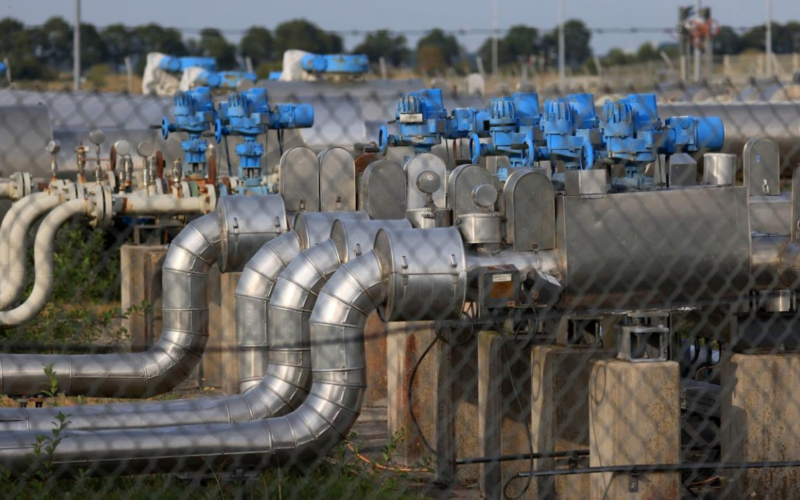As Europe faces the winter months, concerns of a gas shortage have been alleviated for the second consecutive year, with the region boasting record-high gas stocks, according to a recent Moody’s report. The crisis that loomed last winter, triggered by disruptions in Russian gas supplies following the Ukraine conflict, has been averted through government actions, increased liquefied natural gas (LNG) supplies, and energy-saving initiatives. Despite this positive development, consumers are expected to grapple with persistently elevated gas prices, signaling potential economic challenges.
Moody’s research indicates that the European Union (EU) had gas stocks at an impressive 97.5% by the end of November 2023, significantly minimizing the risk of energy shortages for the ongoing winter and positioning the region favorably for the next cold season. Various factors contribute to this improved situation, including increased LNG supplies, higher availability of nuclear and hydropower plants, and a mild winter forecast. The report credits government measures and consistent energy savings by households and businesses for the enhanced energy reserves.
The report notes that lower gas consumption has been influenced by economic stagnation in Europe, aligning with the region’s efforts to curb energy usage. The combination of factors, including the availability of alternative energy sources and a decrease in overall demand, contributes to the robust gas storage levels. Moody’s anticipates gas storage to remain higher than previously expected, reaching 55% by the end of March 2024.
While Europe has successfully averted a winter gas shortage, consumers are not likely to experience relief in terms of gas prices. According to Moody’s, European gas prices are expected to remain high and volatile. The report cites geopolitical risks, potential supply disruptions, and increased global demand as contributing factors to the anticipated volatility in gas prices.
The high and volatile gas prices are identified as a significant factor in dampening inflation rates across Europe. Energy prices have been instrumental in influencing consumer prices, with annual headline inflation in the euro zone registering at 2.4% in November. Despite a 31% decrease in gas price inflation in the UK, consumers continue to face historically elevated bills, a trend that is expected to persist.
While the immediate challenge of a winter gas shortage has been averted, the persistently high gas prices pose ongoing economic and industrial challenges for households and industries. Analysts anticipate that these challenges may lead some industries to consider relocating production outside of Europe. Additionally, concerns persist about the ability of European gas storage capacity to meet future demands, especially in the event of unforeseen geopolitical developments or disruptions in gas supply.
Europe’s record gas stocks offer a sense of security against immediate winter shortages, reflecting successful government interventions and strategic energy management. However, the enduring issue of high and volatile gas prices remains a significant concern for consumers and industries alike. As the region navigates the complexities of its energy landscape, attention to geopolitical risks and global demand dynamics will play a crucial role in shaping the future trajectory of gas prices and energy security in Europe.








